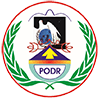“Time and health are two precious assets that we don’t recognize and appreciate until they have been depleted.” – Denis Waitley
Because it is one of the priorities of individuals, families and local communities, which we deal with in relief from disasters, poverty, and the low standard of healthy life and livelihood, especially in seasons of crises, disasters and conflicts, and it deals with primary health, with its comprehensive and interconnected physical, psychological and social aspects. Its essence is to provide care for the person as a whole, with respect to the main health needs, and is not limited to a group of specific diseases, and includes in addition to health care and prevention, treatment and rehabilitation, and vaccination of children and adults, as close as possible to the people’s daily environment, to achieve a percentage of social justice and equity Recognizing the fundamental right to the enjoyment of an attainable standard of health, as stated in Article 25 of the Universal Declaration of Human Rights: “Everyone has the right to a standard of living adequate to ensure the health and well-being of himself and his family, particularly in terms of food, clothing, housing, medical care and necessary social services. This includes providing the necessary aid to those in need during disasters and asylum, enabling individuals, families and communities to optimally improve their health, and training those who are able to help others to provide these health services. Strengthening primary health care is essential to achieving the health-related Sustainable Development Goals and universal health coverage. This will contribute to achieving other goals beyond the goal of good health and well-being (SDG 3), including those related to poverty eradication, zero hunger, quality education, gender equality, clean water and sanitation, decent work and economic growth. economics, reducing inequality, and climate action.
